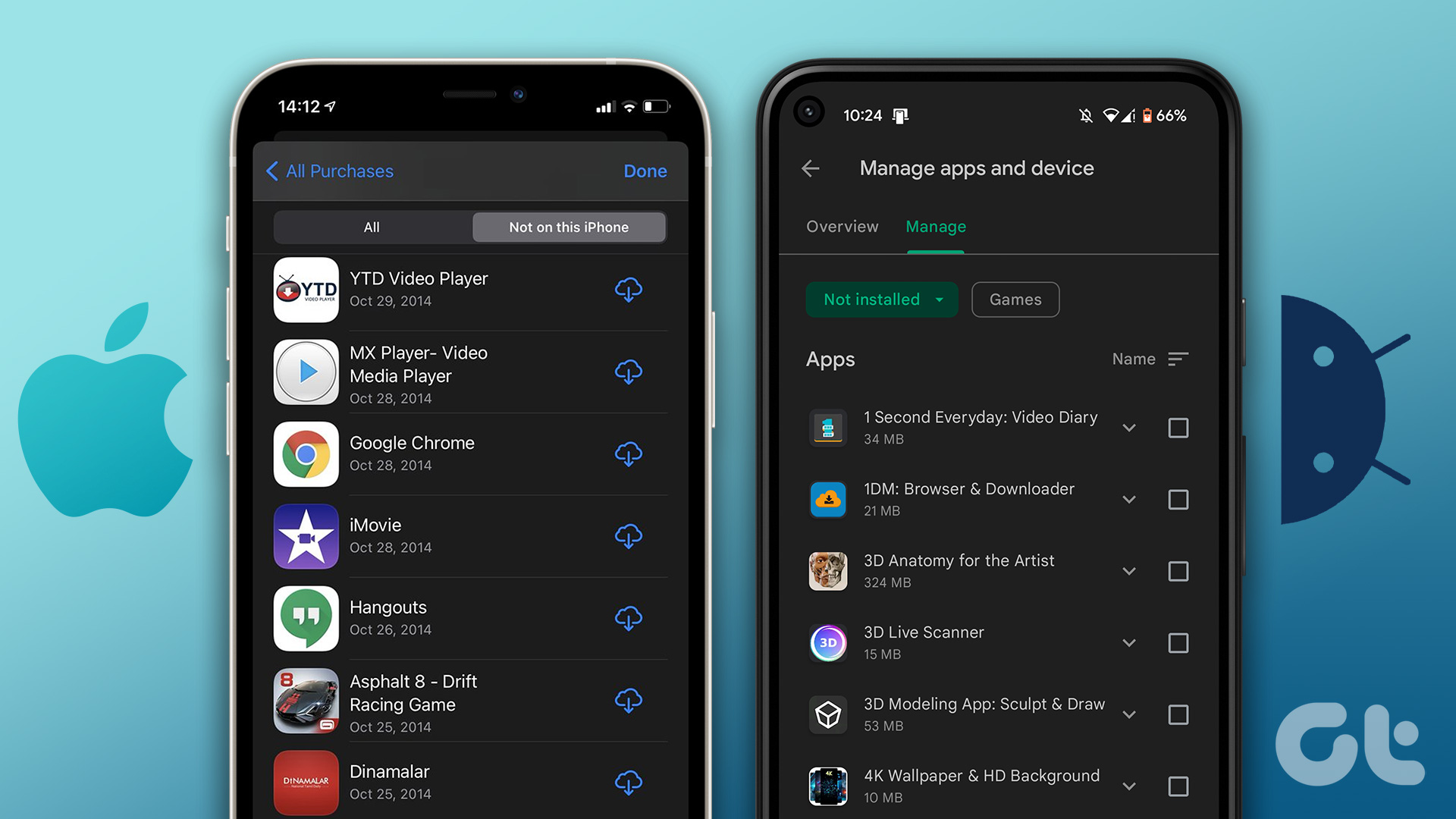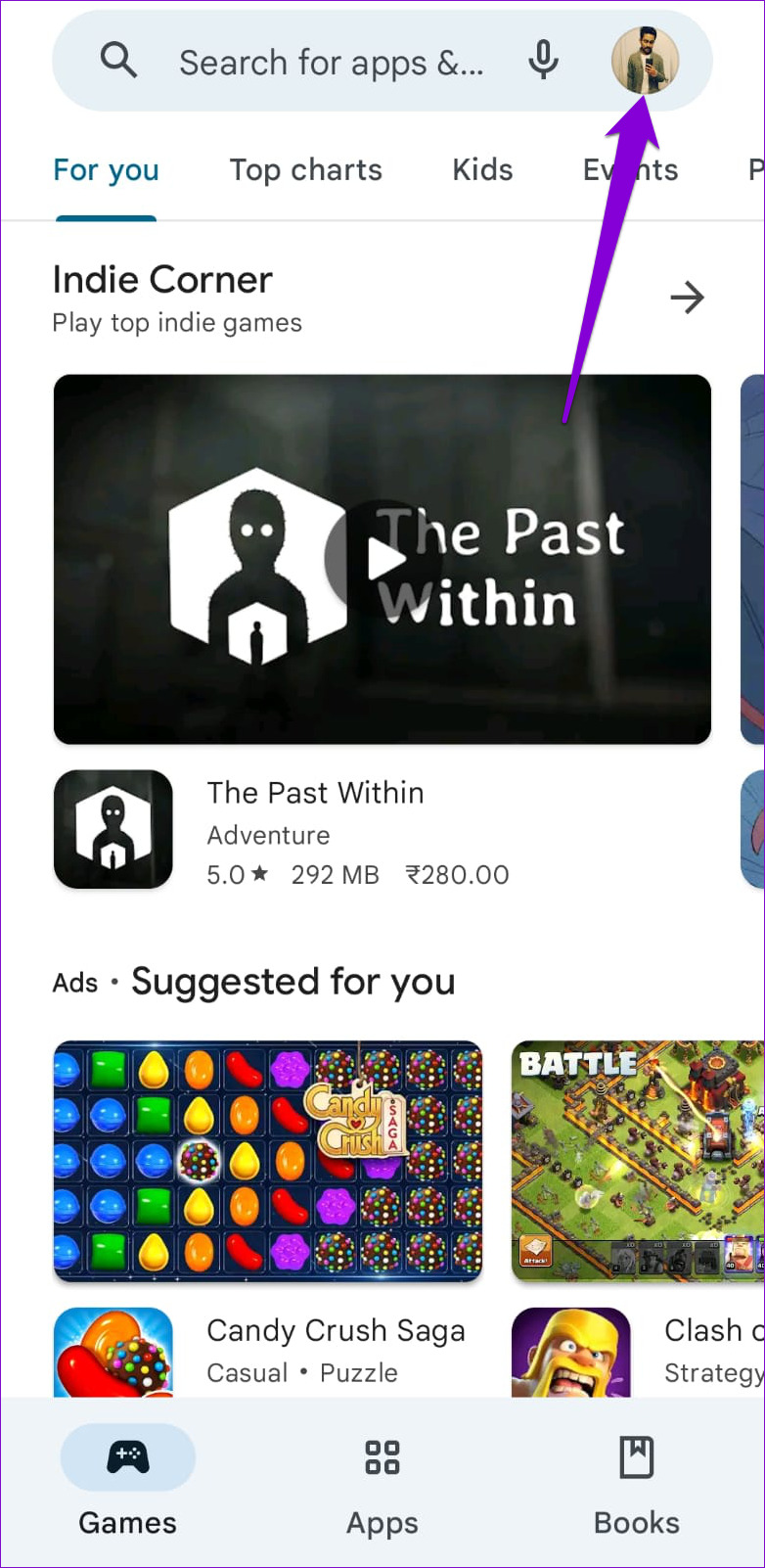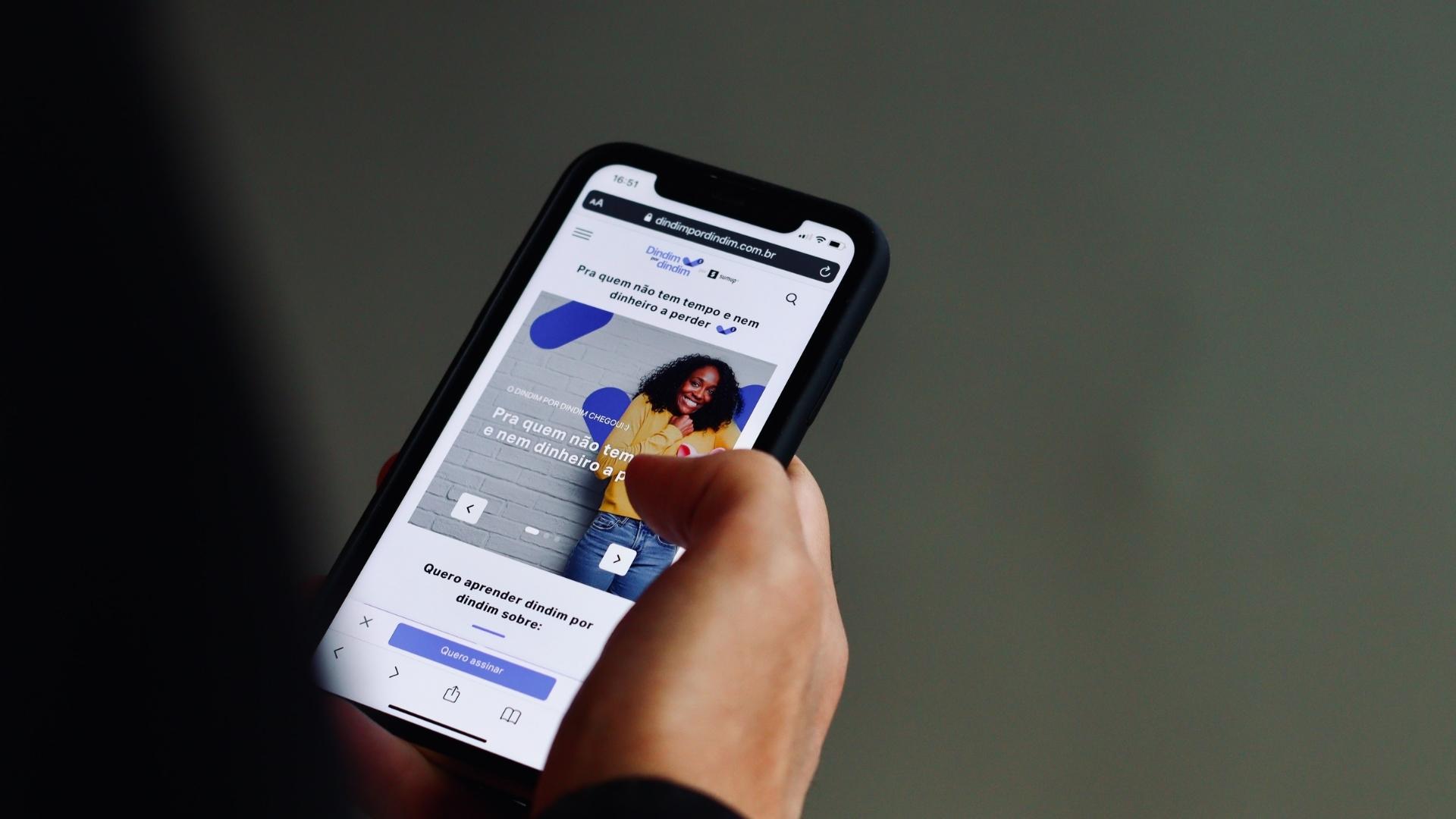Whatever your reason may be, accessing your app download history is an easy task on Android and iPhone. This post will show you how to view and manage previously downloaded apps on Android and iPhone. So, let’s start.
How to View Your App Download History on Android
Google Play Store makes it easy to access your app download history on Android. You can use the following steps to view a complete list of apps and games downloaded using your Google account. Step 1: Open Google Play Store on your Android. Step 2: Tap the profile icon in the top-right corner and select ‘Manage apps & device.’
Step 3: Switch to the Manage tab. Under Installed, you’ll see a list of apps on your phone.
Step 4: Tap Installed and select Not installed to see a list of apps that are no longer on your phone. This list will include any apps or games you’ve downloaded on other devices using the same Google account.
If you’ve been an Android user for a long time, you may have a long download history of apps and games. If you only want to view a list of your purchased apps and subscriptions on Play Store, use these steps instead. Step 1: Open the Play Store on your phone. Tap on your profile icon in the top right corner and select Payments & subscriptions.
Step 2: Tap on Budget & history to view all the purchased apps and games.
How to Remove Apps From Download History on Android
Google Play Store lets you remove apps and games from your download history. This is useful if you want to avoid specific apps appearing on the list. Here are the steps to do the same. Step 1: Open Play Store and tap on your profile icon in the top-right corner.
Step 2: Select ‘Manage apps & devices.’
Step 3: Under the Manage tab, tap on Installed and select Not installed.
Step 4: Select the apps you want to remove from the list using the checkboxes and tap the Remove icon in the top-right corner.
Step 5: Select Remove to confirm.
The selected apps will no longer appear in the download history, but you can always re-download those apps and games later.
How to View Your App Download History on iPhone
Fetching your app download history on iOS isn’t too difficult. You can use the following steps on both your iPhone and iPad. Step 1: Open App Store on your iPhone. Step 2: Tap on your profile icon in the top-right corner.
Step 3: On the Account page, tap on Purchased.
Step 4: You’ll find your app download history and dates under the All tab. You can use the top search bar to find a specific app’s purchase date.
The ‘Not on this iPhone’ tab displays a list of apps that aren’t currently installed on your device. This includes any apps you may have downloaded on other devices using the same account.
How to Hide or Unhide Apps From Purchased History on iPhone
If you don’t want certain apps to appear in your app download history on your iPhone, it’s easy to hide them. You may want to do this if you frequently share your device with your kids or other family members. Here’s how to do it. Step 1: Long press the App Store icon and select Purchased from the menu that appears. This will take you to the Purchased page on the App Store directly.
Step 2: Scroll down or use the search bar to locate the app you want to hide. Swipe left on the app name and tap on Hide.
Step 4: Lastly, tap Done in the top right corner.
If you accidentally hide an app or game from your download history, here’s how you can unhide it. Step 1: Open App Store and tap on your profile icon in the top right corner.
Step 2: On the Account page, tap your name at the top. Then, verify your identity using Face ID, Touch ID, or passcode.
Step 3: Scroll down to the Downloads and Purchases section, and tap on Hidden Purchases.
Step 4: Use the Unhide button next to a hidden app to unhide it.
Manage Your App Download History
With so many apps and games available for your phone, it’s nearly impossible to keep track of everything you’ve downloaded. Finding and managing your app download history is fairly straightforward, whether using an Android or an iPhone. The above article may contain affiliate links which help support Guiding Tech. However, it does not affect our editorial integrity. The content remains unbiased and authentic.








































